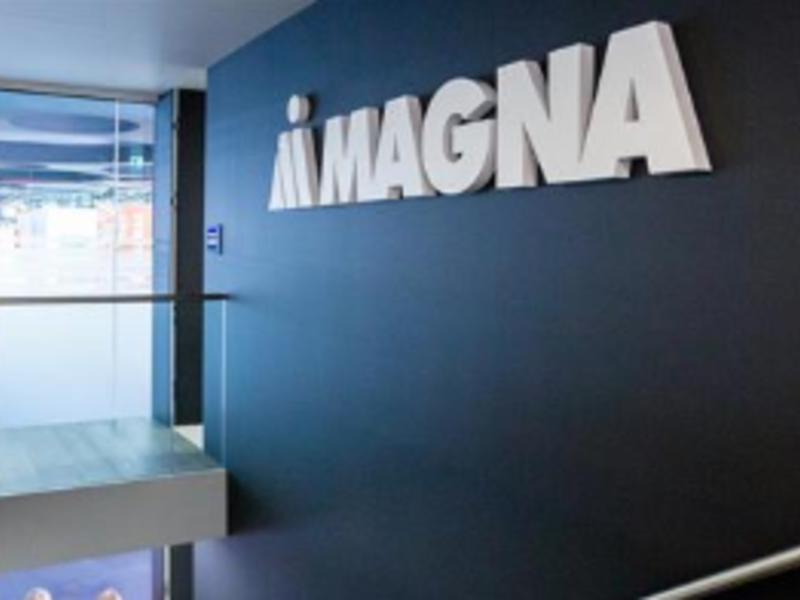
TORONTO — Canadian parts giant Magna International Inc. on Friday said fourth-quarter net income in 2019 dipped 3.5 percent to $440 million due in large part to last year’s 40-day strike at General Motors’ U.S. plants and higher costs related to advanced driver-assist systems.
Revenue for the quarter ending Dec. 31 fell 7.3 percent to $9.4 billion as the company reported revenue declines across all four of its major divisions. Magna is the world’s third-largest auto supplier by annual sales to automakers.
The company pinned some of its earnings decline to higher engineering costs in its advanced driver-assist systems (ADAS) business, driven by the launch of three programs that utilize “new technologies.” The company anticipates costs on those programs declining in the coming years, Magna CEO Don Walker said.
“What we thought we had to do with the scope of the projects was more than we anticipated,” Walker said Friday on a call with analysts and investors. “Year over year, we should certainly be getting better. And I’m comfortable that even though there are some challenges here, that we’ve got a much better handle on it, and the customer also understands collectively with us what some of the challenges are.”
Magna shares fell 1.75 percent to close at $51.55 on Friday in New York.
Magna in January signaled that it would be scaling back much of its spending on the development of Level 4 and Level 5 autonomous-vehicle technology, instead focusing on lower levels the company feels will have more market penetration in the coming years.
In January, it ended a two-year partnership with Lyft Inc. to develop autonomous-vehicle technology. On Friday, the company said it received $221 million in selling its shares of the ride-hailing company.
“I still believe that Level 4 is going to come. I think it’s further out than people had anticipated,” Walker said. “But I’m not sure what the volumes will be when it comes to market, so we’ve just reassessed where we want to spend the money.”
GM strike impact
Revenue from Magna’s body exteriors and structures business, its largest segment by quarterly revenue, fell 6 percent to $3.92 billion due in large part to the 2019 GM strike. Magna CFO Vince Galifi said the strike impacted sales in the division by about $225 million.
Other factors at play in the segment’s sales decline include declining North American and European vehicle production and the weakening of the euro against the U.S. dollar, Magna said.
Sales in its power-and-visions division slipped 9 percent from a year earlier to $2.73 billion, while its seating systems revenue fell 1 percent to $1.43 billion.
Revenue from Magna’s contract vehicle assembly business dropped 13 percent from a year earlier to $1.46 billion as production volume fell by 7 percent to about 33,900 units on the quarter. Lower sales volumes for the Jaguar I-Pace and BMW 5 series and the weakening of the euro against the U.S. dollar offset gains made by the launches of the Toyota Supra and BMW Z4, Magna said.
Coronavirus update
On the year, Magna reported net income of about $1.77 billion, down 23 percent from 2018. Annual revenue declined 3.4 percent to about $39.43 billion.
The company said its outlook for 2020 was unchanged from the one it offered to investors on Jan. 16, when the company anticipated annual net income of between $1.8 billion and $2 billion.
Magna said it did not include any adjustments based off of the impact of the coronavirus in China, where automakers and suppliers have been scrambling to restart production. Walker said “a lot of” Magna’s plants in China have been resuming operations, albeit at lower utilization levels.
Walker said it was “too early to tell” what long-term impact the virus would have on vehicle sales in China, though he said he was encouraged that many plants in China are operational.
The Chinese government “seem[s] to be making some pretty good headway in allowing and encouraging plants to get back up and running,” Walker said.